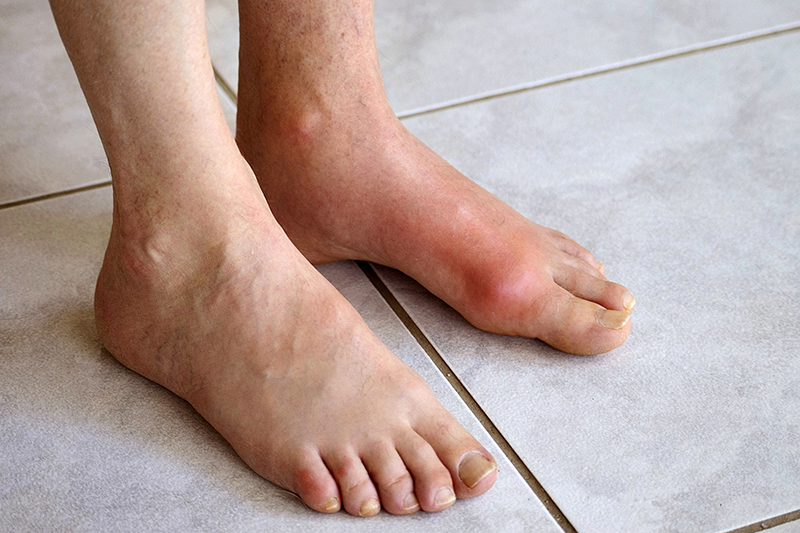Foods to Avoid if You Have Gout
To help prevent gout attacks, steer clear of foods known to raise uric acid levels or trigger flare-ups. Here are some of the key ones to avoid:
- Red and Organ Meats
Beef, lamb, pork, as well as organ meats like liver, kidneys, and tongue are loaded with purines. Reducing your intake of these meats can help lower uric acid production. - Certain Fish and Seafood
Fish like tuna, anchovies, sardines, and herring, along with shellfish such as shrimp, lobster, and oysters, are high in purines and should be limited. - Alcohol—Especially Beer
Beer and hard liquor can disrupt uric acid elimination, triggering gout symptoms. While moderate wine consumption may be acceptable for some, it’s best to speak with your doctor for specific advice. - Sugary Foods and Drinks
Beverages and foods that contain high levels of fructose—such as soda, packaged fruit juices, granola bars, and some cereals—can raise uric acid levels. Cutting down on sugar-laden snacks and drinks is crucial. - Refined Carbohydrates (like white bread and rice)
Highly processed carbs are quickly metabolized, leading to spikes in blood sugar and uric acid. Opting for whole grains is a better option for gout management.

Recommended Foods for Managing Gout
On the flip side, several foods can support lower uric acid levels and reduce the likelihood of gout attacks:
- Vegetables
Though some vegetables like spinach, asparagus, and cauliflower were once thought to increase uric acid, research shows they’re generally safe in moderation. Most vegetables are low in purines and good for your diet. - Low-Fat Dairy Products
Skim milk, low-fat yogurt, and other dairy products can help reduce uric acid levels naturally. Choosing low-fat versions also helps keep inflammation at bay. - Plant-Based Proteins
Foods such as tofu, lentils, beans, and whole grains are excellent protein sources that are low in purines. Healthy fats, like those in olive or sunflower oil, also support inflammation control. - Citrus Fruits
Fruits rich in vitamin C, including oranges, grapefruits, and pineapples, promote uric acid excretion and can help prevent future flare-ups. - Coffee
Surprisingly, moderate coffee intake may assist in lowering uric acid levels. Just remember not to overconsume, as too much caffeine can bring its own risks. - Avocados
These creamy fruits are not only low in purines but also high in heart-friendly fats. They have anti-inflammatory properties that may ease gout-related pain and swelling.

Building a Gout-Friendly Lifestyle
Managing gout isn’t just about avoiding trigger foods. It also involves a broader lifestyle approach, including:
- Reaching and maintaining a healthy weight: Extra body fat can contribute to elevated uric acid.
- Staying hydrated: Drinking sufficient water helps the body flush out excess uric acid.
- Being active: Regular exercise improves circulation and supports healthy uric acid levels.
- Medication: In some cases, your healthcare provider may prescribe drugs to keep uric acid under control.
By paying close attention to what you eat and adopting healthier habits, you can significantly reduce your risk of painful gout episodes and keep your uric acid levels in check. If you’re unsure about what dietary changes to make, consider speaking with a healthcare provider or dietitian for guidance tailored to your needs.
Taking control of your nutrition and lifestyle can make a real difference in preventing gout attacks and improving your overall well-being.

